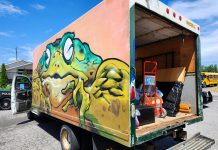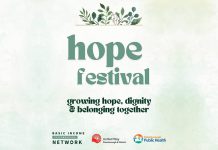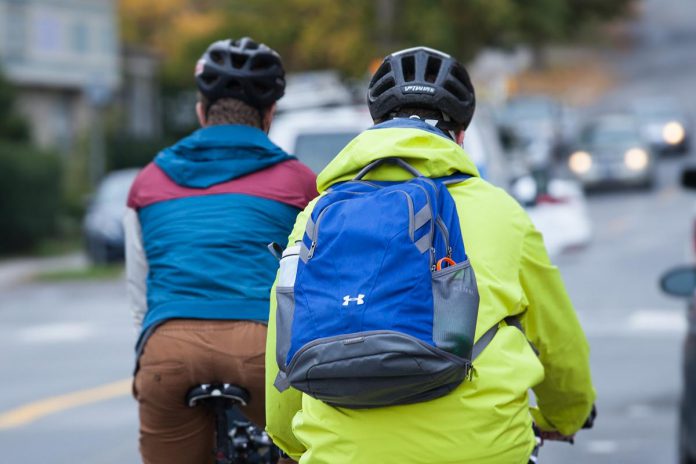
Let’s be real. Culturally, we are becoming more and more obsessed with fall. As soon as Labour Day ends, we are knee-deep in fall decor, pumpkin-spice-flavoured everything, and our social media feeds are filled with cozy images of autumn aesthetics. One might be inclined to ask “but, why?”
I will leave the broader speculation up to someone else, but it’s easy to understand that with the arrival of fall comes a feeling of excitement for the new. For many of us, September is the second new year of the calendar, where students (young and, well, less young), staff, and support workers head back to school, with all the promise that it brings for change.
A new school year may mean getting to know a new city, a new school, and forming new habits. As the weather begins to chill, and the leaves turn from green to amber, many of us find that new routines are also being built, and transforming for the better.
One of these transformations happens around movement. Daily life often revolves around travelling to campus or school. The commute to class, teaching, or work is an almost unavoidable routine in someone’s day. Building new habits around this daily trip can make a huge impact, with as little as a shift in mindset.
New commuting habits can benefit your well-being, finances, and the environment. Starting them can be as easy as joining a community challenge.
Shifting Gears at GreenUP is here to help you get kick-started. From Monday, September 26th to Sunday, October 9th, students, staff, and admin from the Fleming and Trent campus communities are invited to sign up for the Fleming and Trent Transportation Challenge.
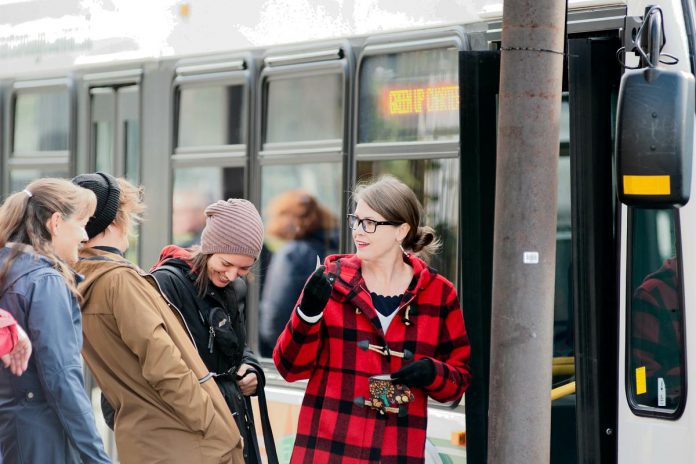
Participants in the fall Transportation Challenge will pledge to take the trip to work or class by walking, cycling, taking transit, carpooling, and telecommuting (working from home). Plus, in true habit-forming spirit, participants can track their trips online to win prizes.
For nearly 20 years, Shifting Gears has encouraged Peterborough citizens to form new routines and habits in their transportation choices. The program encourages people to take fewer car trips, opting instead for active and sustainable transportation modes. Opting into alternative modes of driving has benefits for the habit-former, leading to improved health and wellness, reduced expenses, and increased community engagement.
As well, it encourages a healthier carbon footprint — 20 per cent of carbon emissions on average come from our personal transportation choices alone.
Successfully changing your habits is often about slowly changing and growing in ways that feel possible, safe, and even convenient. More people choose active transportation modes, like cycling and transit, when safe and established infrastructure is already in place.
Transportation is still a rare example of a utility where supply creates demand for infrastructure changes. For example, in 2018, an increase in ridership was observed (65,000 more rides than in previous years) when a new transit line was added and an existing route expanded for travel to Fleming College. This rapidly brought ridership in line with Trent University — an outstanding change.
The Trent and Fleming communities don’t just use transportation infrastructure, they have also been integral to helping reshape it. Capital investments and projects do not happen without data and measurements, often supplied from these communities.
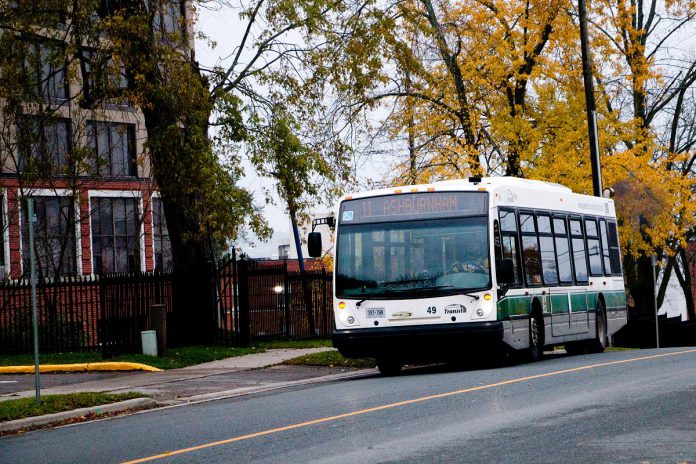
Since September 2013, Trent community volunteers have been assisting with an annual three-day count of pedestrians and cyclists all over Peterborough in 31 locations, counting the number of non-car users in morning and afternoon commutes. ‘Count Week 2022’ is occurring this year from September 20th to 22nd, a time when many students are settled and ready to explore new extracurricular activities.
This data has revealed that there are currently 21 per cent more cyclists using these commuter corridors than in 2012. For every 1.5 kilometres of cycling infrastructure built, the overall cycling rate increases by four per cent. Another case of supply creating demand for active and sustainable travel, and another case for academic communities to help see sustainable change happen.
This is all well and good, but what about the demands of “real life?”
Shifting Gears recognizes that daily commuter trips don’t happen in isolation. They may be tied up in a trip to pick up the kids, visit the gym, or run errands. The complexity of life can make it hard to leave behind the convenience of the daily car ride. To help make an easy switch, Shifting Gears provides workshops, community, mentorship, resources, and equipment to both individuals and employers.
At the end of the day, small changes in your day can grow into larger habit shifts over time. The key is to begin the journey, says Angel Windrem, co-owner of Green Street Bikes.
“Shifting Gears helps people change the way they view their daily commute,” Windrem explains. “That type of change has the potential to extend far past the end of the (transportation challenge), which is something we can get behind. The act of ‘shifting gears’ is a process. It doesn’t happen all at once … take it one trip at a time. And if you miss a couple (of days), don’t sweat it! Tomorrow is another day with another opportunity to hop on your bike or lace up the sneakers.”
Join the Shifting Gears community for the fall Fleming & Trent Transportation Challenge by checking out the GreenUP Shifting Gears page at greenup.on.ca/program/shifting-gears and take the pledge to choose active transportation.
Happy fall, and join us in shifting towards better active transportation habits.



